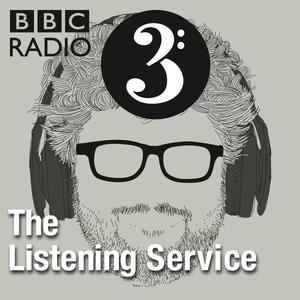
The Listening Service
BBC Radio 3
Rethink music with The Listening Service. Tom Service presents a journey of imagination and insight, exploring how music works
- 28 minutes 34 secondsWhat's the point of Listening?
Isn’t it great to be able to listen to so much music, to be able to search and scroll and find anything you want…? Or to have tracks suggested for you without even thinking about it…? Or is it? Perhaps you miss the days when you had to save up to buy a recording, and you loved it so much you listened over and over again. Or you waited for something to be played on the radio, knowing it might be the only chance you’d have to hear it.
Tom Service explores how we listen today in the digital age and reflects on the pieces of music that changed his life when he heard them first, and then really listened to them, again and again.
Producer: Ruth Thomson
31 March 2024, 4:31 pm - 28 minutes 29 secondsNeedle Drop: the power of classical music in film
Tom Service discovers the mighty musical power of needle drop - the use of pre-existing music in film soundtracks.
From 2001: A Space Odyssey to Barbie, from The Shining to Maestro, Tom listens in to some of the most iconic film scenes using needle-dropped classical music. He explores how directors harness the resonance and meanings of a piece of music to enrich the film's storytelling, and how a successful fusion of sound and image can leave such a deep impression in viewers' minds that music and film become inextricably entwined in popular consciousness.
Plus, Maggie Rodford - one of the film industry's most sought-after music supervisors - pulls back the curtain on the processes and thinking behind choosing the right needle drop for the right scene to make the most meaningful movie.
Producer: David Fay
10 March 2024, 5:31 pm - 28 minutes 40 secondsImpassioned argument: Elizabeth Maconchy's string quartets
"For me, the best music is an impassioned argument". So said one of Britain's greatest 20th-century composers, Elizabeth Maconchy.
Who?? Despite her many awards and medals - including a damehood in 1987 - and a lifetime spent promoting new music, Elizabeth's work slipped out of fashion and out of view in the latter part of her remarkable career. With concertos and symphonies, vocal music, chamber works, five operas, an operetta and three ballets to her name, Elizabeth's voice is that of economy, elegance and rich expression. And it is in her century-spanning 13 string quartets that her development - and musical outlook - as an artist are most closely expressed.
With a cultural resurgence in all things mid-century, Tom Service chats to Janell Yeo of the Bloomsbury Quartet and considers whether the time is now ripe for a reclamation of Elizabeth's place at our musical top table.
3 March 2024, 5:31 pm - 28 minutes 28 secondsSongs of the Moon
Many of the most instantly recognisable works in classical music are inspired by the Earth’s moon – Debussy’s ‘Clair de Lune’, Beethoven’s ‘Moonlight Sonata’, Dvořák’s ‘Song to the Moon’. Tom Service takes us on a musical voyage to the moon (and back), from the cosmic-scale classical to the lesser known music invoking and inspired by our mysterious celestial companion.
With Professor Monica Grady CBE, leading British space scientist.
Producer: Lola Grieve
25 February 2024, 5:35 pm - 28 minutes 35 seconds'Pathétique'
Tchaikovsky's 6th Symphony is given the subtitle "Pathétique", the use of the French word removing some of the negative connotations that the word pathetic has in English, which is the literal translation. Pathétique suggests something of great passion with perhaps a sense of great sadness too. Tom Service examines how this word might apply to one of Tchaikovsky's most profound and intense works.
5 February 2024, 10:51 am - 29 minutes 3 secondsTurangalila!
It made Pierre Boulez want to vomit: Francis Poulenc thought it was atrocious: and Igor Stravinsky said all you needed to write it was enough manuscript paper. But its composer wrote all 80 minutes of it as a love song, and a hymn to joy. So just what is Olivier Messiaen’s epic Turangalila Symphony, premiered in 1949 by Leonard Bernstein and the Boston Symphony Orchestra, why did it divide opinion so much, and what does it mean today?
Producer: Ruth Thomson
21 January 2024, 5:31 pm - 29 minutes 3 secondsJumping Fleas: the rise and rise of the Ukulele
Tom Service explores the world of the Ukulele, from the Hawaiian Royal Court of King Kalakaua to Blackpool Pier with George Formby, the Royal Albert Hall where hundreds of ukulele players performed Beethoven's Ode to Joy at the 2009 BBC Proms, and into thousands of classrooms where it's now the most widely taught instrument in British primary schools.
With Hawaiian born ukulele virtuoso and composer Taimane Gardner.
Producer: Ruth Thomson
16 January 2024, 9:13 am - 29 minutes 3 secondsResolutions
The word 'resolution' has several meanings. It can refer to something that has been settled or resolved. It can infer a desire to do something differently or to behave in a changed way - as in a New Year resolution. It can also mark the final unravelling of some great complication or drama. In music, it means something more specific: the progression from discord to consonance. With New Year in mind, Tom Service considers the idea of resolution in music in the widest sense of the word; including a look at how composers set about creating a resolve to their musical ideas. Tom's guest expert is the composer Dobrinka Tabakova.
31 December 2023, 5:31 pm - 29 minutes 14 secondsNew York, New York!
Is it a bird, is it a plane? No, it's Tom Service, exploring the musical life of The Big Apple, from its underground scene to John and Yoko's loft and Superman's skies. He roams The City That Never Sleeps, whose origins as the swampy "hilly island" known as Mana-hatta are buried under the modern day powerhouse that acts as both setting and character in the music it inspires. From Bach in the subway to minimalist taxi drivers and King Kong, by way of Varese, Thomas Ades and Bernstein, Tom celebrates this astonishing musical city.
11 December 2023, 10:29 am - 29 minutes 4 secondsThe Trombone Section
At the back row of the orchestra, usually three in number, sit the trombone section, but why three and how long have they been there? Tom Service reflects on their history and the ways in which they are employed. He looks back on over five hundred years of the story of the trombone and offers insight into the meaning of things such as 'Tower Music' and 'Stadtpfeifer'. Tom looks at the role of the trombone in religious music and in music for the theatre, and at its comparitively late arrival within the symphony orchestra, back in the final decades of the 18th Century. And there's a chance to enjoy some of the distinctive qualities that trombones offer to the orchestral music of Beethoven, Schumann, Brahms, Shostakovich and Berg. This week's guest expert is the principal trombonist of the Halle Orchestra, Katy Jones.
26 November 2023, 5:31 pm - 29 minutes 2 secondsThe Old Testament of Music
Tom Service explores JS Bach's extraordinary The Well-Tempered Clavier, a series of 48 preludes and fugues for keyboard in all 24 major and minor keys. It's widely regarded as a towering achievement and a cornerstone of western art music. The 19th century German conductor and pianist, Hans von Bülow famously described it as “The Old Testament of Music” and generations of musicians and scholars have spoken of its monumental stature in the history and development of music.
From the first, C major prelude with its lean and simple series of arpeggios, taking listeners on an exquisite harmonic journey, through to darker and more complex moments, with plenty of playfulness and joy along the way, The Well-Tempered Clavier is an astonishing feat of imagination. These two books of preludes and fugues are a treasure trove, where Bach combines contrapuntal wizardry with his extraordinary gift for expressing human emotion.
With help from American pianist, Jeremy Denk, Tom Service lifts the lid on The Well-Tempered Clavier to discover its secrets.
Producer: Jonathan Hallewell
19 November 2023, 5:31 pm - More Episodes? Get the App
Your feedback is valuable to us. Should you encounter any bugs, glitches, lack of functionality or other problems, please email us on [email protected] or join Moon.FM Telegram Group where you can talk directly to the dev team who are happy to answer any queries.
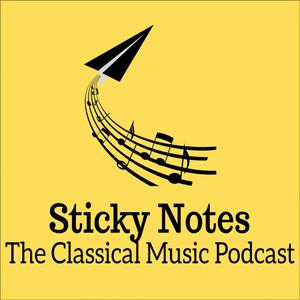 Sticky Notes: The Classical Music Podcast
Sticky Notes: The Classical Music Podcast
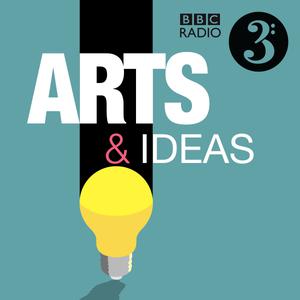 Arts & Ideas
Arts & Ideas
 Add to Playlist
Add to Playlist
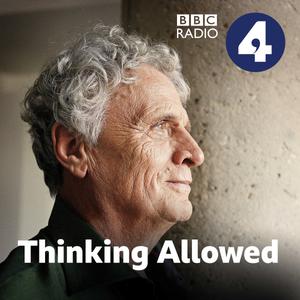 Thinking Allowed
Thinking Allowed
 Private Passions
Private Passions
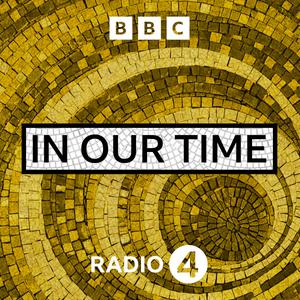 In Our Time
In Our Time